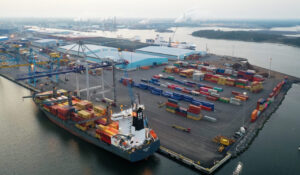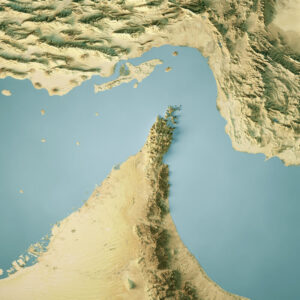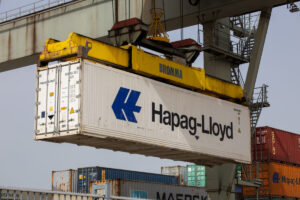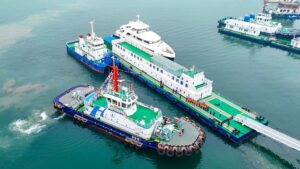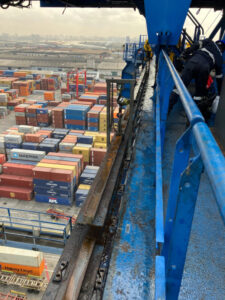The Smart Ports and Supply Chain Technologies Conference 2018 featured inspiring presentations, influential panel discussions and laid the groundwork for a more connected future.
In the first of two conference reviews, Port Technology will outline the key highlights and developments from the first day of the conference.
The event began with a keynote speech from Joyce Bliek, Director of Digital Business Solutions at the Port of Rotterdam.
Bliek discussed how Rotterdam’s Internet of Things (IoT) platform is collecting and processing real-time data, in preparation for the connected vessels and autonomous shipping of the future.
In the next session, focused on Rotterdam’s “Smart Port Vision”, speakers Jan Gardeitchik, Rob Zuidwijk, Roy van den Berg and Tim de Knegt explored how the port responds and adapts to different scenarios.
#SPSC18 “This market is extremely complex” – Rob Zuidwijk @erasmusuni discusses how #SmartPorts integrate logistically with the #SupplyChain pic.twitter.com/W4V9GZOkaJ
— Port Technology (PTI) (@PortTechnology) October 2, 2018
Another topic discussed on the first day was innovation and, more specifically, how to achieve digitization in the maritime industry.
Mare Straetmans, Managing Director of PortXL, stated that “start-ups can be part of the solution for corporates to innovate”, while Jan Egbertsen of the Port of Amsterdam questioned “what influence can we have as a port authority to become smarter?”
Conversation soon turned to the supply chain, with Wolfgang Lehmacher of the World Economic Forum asserting that “customer experience should be the first thing that comes into our minds.”
SPSCT18 Video Highlights: Blockchain, Automation and Collaboration
One of the key technologies debated heavily at the conference was blockchain, which according to Henrik Hvid Jensen “avoids double spending without the need of a central authority.”
However, an expert panel of speakers, including Jose Garcia de la Guia, Katherine Foster and Igor Jakomin, did agree that blockchain will not apply to all types of transaction.
Hans Rook, Chairman of the International Port Community Systems Association (IPCSA), called for a common data model that would drive collaboration between smart ports around the world.
In a final panel on the first day of the conference, Wolfgang Lehmacher, Lamia Kerdjoudj-Belkaid, Rob Zuidwijk, Lars Jensen and Craig Halford sat down with Vincent Valentine, UNCTAD, to debate smart methods of global trading.
#SPSC18 The first half of day one at this year's Smart Ports and Supply Chain Technologies Conference has offered meaningful, engaging discussions about #SmartPorts, #Data and the #SupplyChain.
What will the rest of this two-day event have in store? Follow the conversation! pic.twitter.com/yUPFNg9mPf
— Port Technology (PTI) (@PortTechnology) October 2, 2018
Lars Jensen, who acknowledged the challenges posed by regulation and standardization, provoked much discussion by asking “what can we do with what can’t be automated?”
The question prompted a recurring notion from speakers at this year’s Smart Ports and Supply Chain Technologies Conference: all ports and terminals are different, and must be approached on an individual basis relevant to their specific needs.
The second part of Port Technology’s conference review will focus on the second day of the event, where attention turned towards supply chain logistics and evolving business models.







